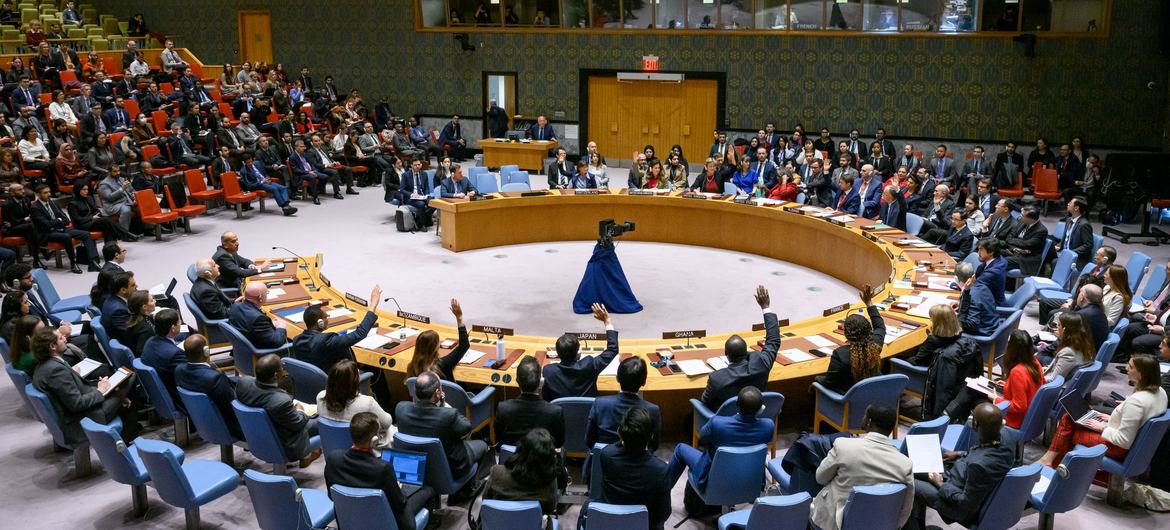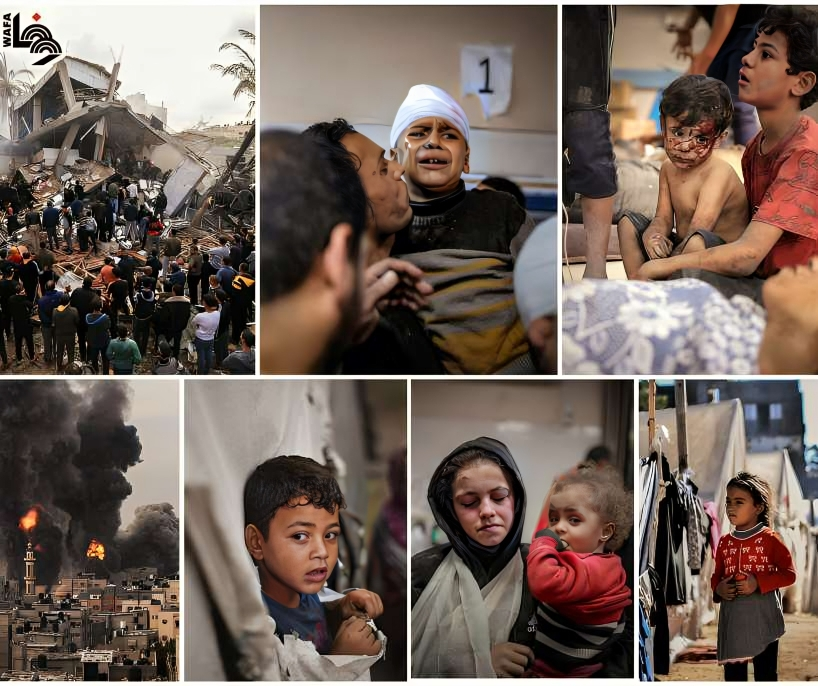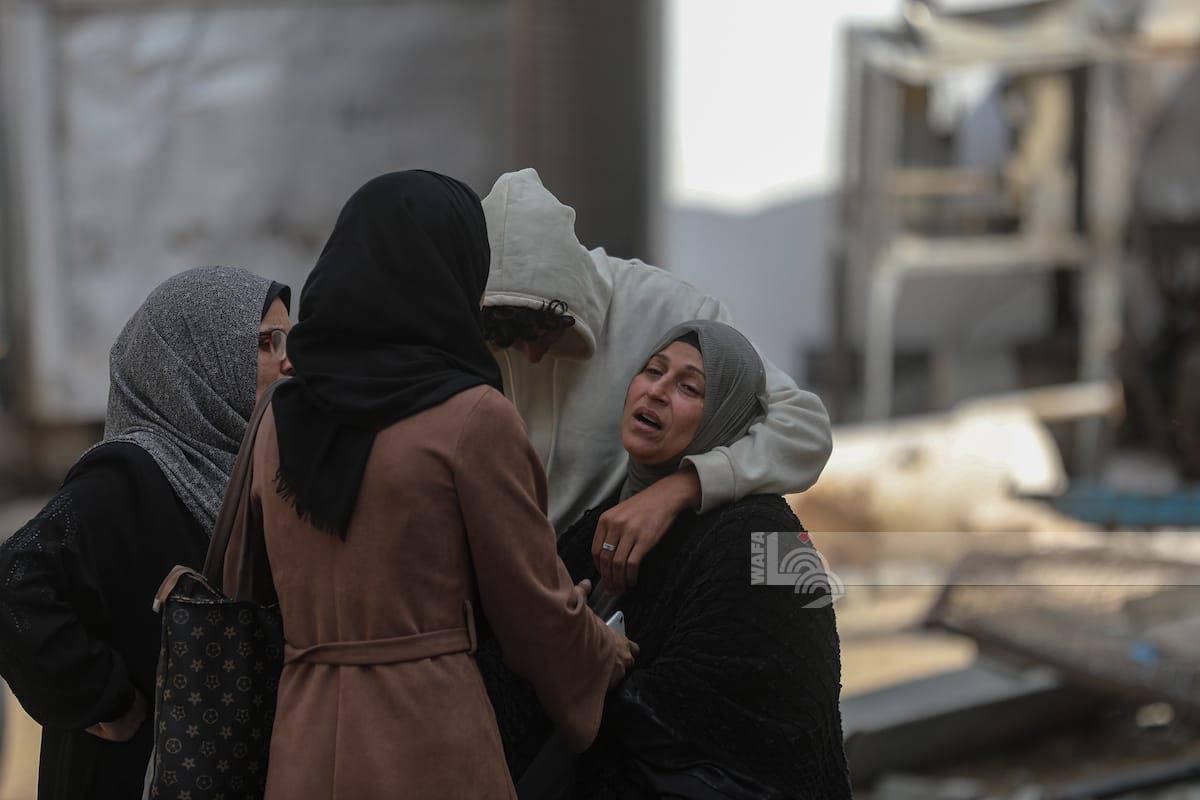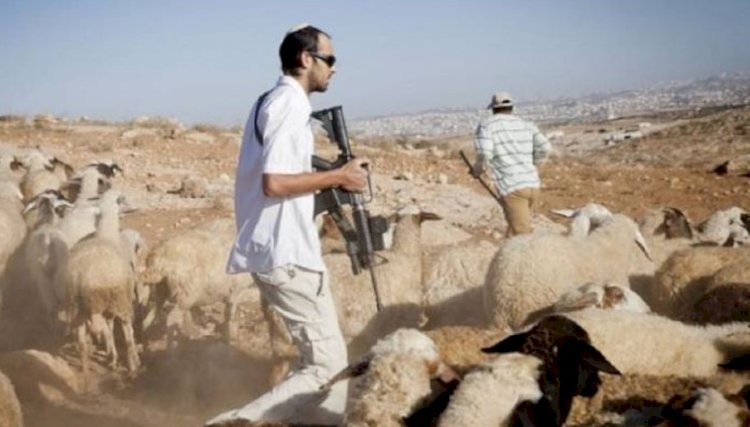NEW WORK, April 29, 2025 (WAFA) – The United Nations Security Council (UNSC) Tuesday evening held a ministerial-level meeting on the situation in the Middle East, including the Palestinian Question, in New York.
French Foreign Minister Jean-Noël Barrot chaired the debate as his country currently holds the rotating presidency of the Council, while UN Secretary-General António Guterres attended it.
In his speech, UN Secretary-General Guterres warned that “the promise of a two-State solution is at risk of dwindling to the point of disappearance.”
He also warned that the two-state solution “is near a point of no return” and stressed that the international community “has a responsibility to prevent perpetual occupation and violence.”
He encouraged Member States to “go beyond affirmations, and to think creatively about the concrete steps they will take to support a viable two-State solution before it is too late.”
He urged them to “take irreversible action towards implementing a two-State solution” and “not let extremists on any side undermine what remains of the peace process.”
He added that the Middle East is undergoing fundamental shifts, marked by violence and volatility but also opportunity and potential.
He pointed out that “across the Middle East, people demand and deserve a better future, not endless conflict and suffering.”
He called for collective action “to ensure that this turbulent and transitional period meets those aspirations -- and delivers justice, dignity, rights, security and lasting peace.”
The UN chief stated that: “The world cannot afford to watch the two-State solution disappear,” noting that “Political leaders face clear choices -- the choice to be silent, the choice to acquiesce, or the choice to act.”
He went on to say that “the legitimate national aspirations of the Palestinians have been denied – while they endure Israel’s continued presence that the International Court of Justice has found unlawful.”
He warned, "The world cannot afford to watch the two-State solution disappear,” whereby “political leaders face clear choices -- the choice to be silent, the choice to acquiesce, or the choice to act.”
Commenting on the ceasefire agreement that Israel unilaterally ended on March 18,Guterres said: “The ceasefire had brought a glimmer of hope – the long-sought release of hostages and delivery of lifesaving humanitarian relief. But those embers of opportunity were cruelly extinguished with the shattering of the ceasefire on 18 March.”
“Since then, almost 2,000 Palestinians have been killed in Gaza by Israeli strikes and military operations – including women, children, journalists, and humanitarians,” he added.
Commenting on the humanitarian situation in the Strip, the UN chief said: “The humanitarian situation throughout the Gaza Strip has gone from bad … to worse … to beyond imagination.”
“For nearly two full months, Israel has blocked food, fuel, medicine and commercial supplies, depriving more than two million people of lifesaving relief,” he elaborated while noting that this happened “all while the world watches.”
He voiced his alarm over Israeli officials’ statements about the use of humanitarian aid as a tool for military pressure, and stressed that “aid is non-negotiable.”
Referring to the International Court of Justice’s advisory proceedings on the obligations of Israel, as an occupying Power and a Member of the United Nations, in relation to the presence and activities of the United Nations in and in relation to the Occupied Palestinian Territory, he said that “Israel, as an occupying Power, is under an obligation to ensure food and medical supplies of the population.”
He added that “Israel has an obligation to agree to and facilitate relief schemes in the Occupied Palestinian Territory,” and stressed the obligation to respect and protect humanitarian, medical and United Nations personnel.
He emphasized “the obligation under international law to respect the privileges and immunities of the United Nations and its personnel, including the absolute inviolability of United Nations premises, property and assets – and the immunity from legal process of the United Nations.”
He pointed out that “Such immunity applies to all UN entities in the Occupied Palestinian Territory – including UNRWA – a subsidiary organ of the General Assembly.”
Meanwhile, Amar Bendjama, the Ambassador of Algeria, said that despite the UN Secretary-General’s “tireless efforts to ease the suffering of the Palestinian people,” the international community and the Security Council have both failed to “extend the level of support required to make these efforts impactful.”
“The absence of collective action, the lack of accountability, and the double standard have emboldened the Israeli occupying power to act with total impunity,” he said, adding that the crisis in Gaza is one of the worst humanitarian failures of our generation.
“Today the notion of a Palestinian state feels more like a fading delusion,” the Algerian Ambassador said.
He stated that despite waves of dispossession and despite the immense suffering, the Palestinian people have never surrendered and continue to cling to their homeland, culture and aspirations.
“With the support of the International Community, and through steadfast resilience, the Palestinian people will achieve their inalienable right to self-determination,” he added.
Meanwhile, UK Minister for Africa and the UN Lord Collins called for returning to the ceasefire to end the terrible bloodshed.
He voiced his profound concern over the World Food Programme’s announcement on Friday that its food stocks in Gaza have run out.
“It is unacceptable that Israel has blocked humanitarian support from entering Gaza for nearly two months, meaning that Palestinian civilians, including one million children, are facing starvation, disease and death,” he added.
He stressed that “UN and other workers must be able to deliver life-saving assistance safely, and in line with humanitarian principles.”
In the meantime, Danish Ambassador Christina Markus Lassen highlighted the worsening situation in Gaza, where no humanitarian aid has been allowed in for almost two months.
She also voiced alarm over reports that the World Food Programme (WFP) has depleted all its food stocks. Furthermore, families “are reporting utter exhaustion from moving numerous times due to Israeli-issued evacuation orders.”
“We will also continue to remind Israel that it must defend itself within the parameters of international law, including international humanitarian law,” she added.
US ambassador Dorothy Shea stated: “Fresh thinking is needed to bring about a durable peace and prosperity that provides opportunities for all the region’s people.”
Commenting on the humanitarian situation in the Strip, she said: “no one wants to see Palestinian civilians in Gaza go hungry or thirsty,” while noting that “a ceasefire agreement would create the condition for the flow of humanitarian aid.”
Meanwhile, Pakistan's Ambassador Asim Iftikhar Ahmad said the tragedy unfolding in Gaza is “without precedent” – both in its scale and its inhumanity.
“This is not merely a humanitarian crisis, it is the systematic destruction of a people and the erasure of a nation’s right to exist,” he said, describing the Israeli strike on al-Ahli Hospital earlier this month as “a horrific massacre.”
He said that the deliberate targeting of civilians and essential infrastructure, the use of starvation and burning of displaced families in tents “are not collateral damages of war, they are methods of war.”
He added that Israel’s unilateral breach of the ceasefire agreement, brokered by Egypt, Qatar and the US, “was a deliberate choice of return to war over diplomacy”.
“In the face of this gloom and devastation, the world must act. The status quo is untenable,” he said, calling for an immediate and permanent ceasefire, full and unhindered humanitarian access, and a clear political horizon grounded in Palestinian statehood.
In the meantime, Russian Ambassador Vasily Nebenzya said the catastrophic situation in the Gaza Strip is worsened by the nearly 60-day blockade of food and medicines.
He noted that this has led to supplies running out, despite 3,000 trucks from UN Palestine refugee agency (UNRWA) being ready to enter the enclave.
Humanitarian organizations are also warning about an impending famine, particularly among children.
“We must not forget that these actions of Israel are directly impacting the detention conditions of the hostages in the Strip,” he said.
“It is totally unacceptable to use humanitarian assistance as a bargaining chip in negotiations.”
The situation is “artificially exacerbated by Israel's ban on UNRWA’s work,” he added, noting that the agency “plays a key, irreplaceable role in conducting humanitarian operations on the ground and providing comprehensive assistance to Palestinians.”
Nebenzya said undermining the work of UNRWA “is complicating an already difficult situation” for people in Gaza, East Jerusalem and the West Bank, and he urged Israel to reconsider its decision to cease cooperation with the agency.
K.F.












